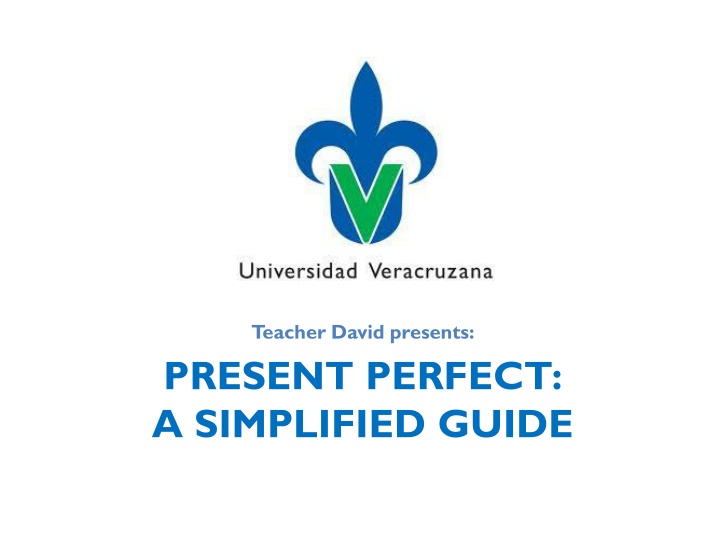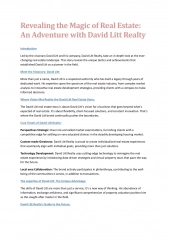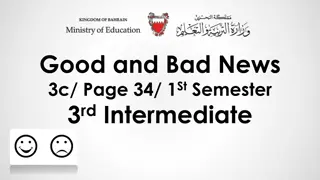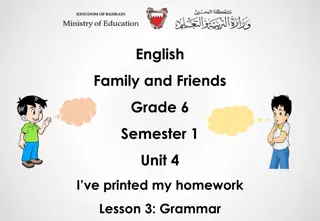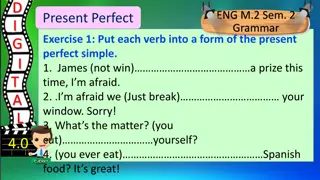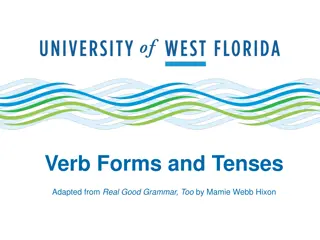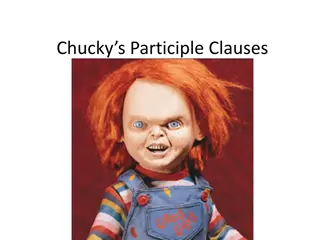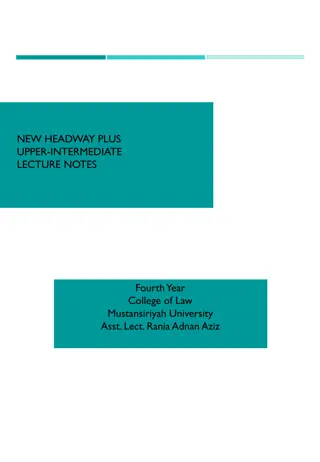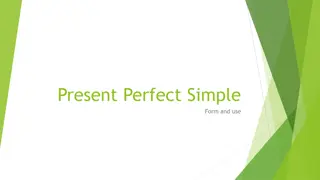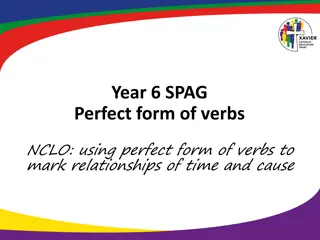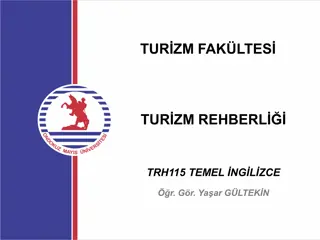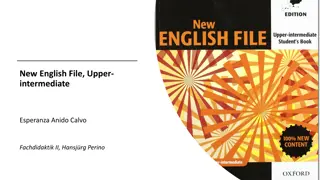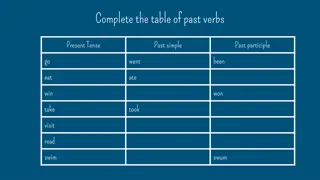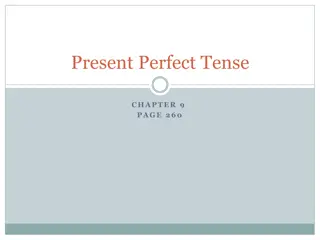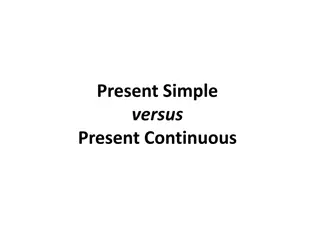Teacher David Presents: Present Perfect Simplified Guide
Usage of the present perfect tense for talking about past experiences without specific time references. Covers affirmative, negative, and interrogative forms, irregular past participles, and common verb examples. Helpful illustrations included.
Download Presentation

Please find below an Image/Link to download the presentation.
The content on the website is provided AS IS for your information and personal use only. It may not be sold, licensed, or shared on other websites without obtaining consent from the author.If you encounter any issues during the download, it is possible that the publisher has removed the file from their server.
You are allowed to download the files provided on this website for personal or commercial use, subject to the condition that they are used lawfully. All files are the property of their respective owners.
The content on the website is provided AS IS for your information and personal use only. It may not be sold, licensed, or shared on other websites without obtaining consent from the author.
E N D
Presentation Transcript
Teacher David presents: PRESENT PERFECT: A SIMPLIFIED GUIDE
PRESENT PERFECT It is used: .To talk about experiences in the past. We don t say exactly when they happened: I have made a YouTube video. I haven t seen that movie.
PRESENT PERFECT With the present perfect we often use ever (= in your life) in questions and never (not in your life). Have you ever been to Brazil? He s never downloaded music.
PRESENT PERFECT We use the affirmative form with never. I have never been to Canada. (NOTI haven t never been to Canada).
PRESENT PERFECT We form the present perfect with have/has + the past participles (lived, sent, etc.) With regular verbs, past participles en in ed. They are the same as the past simple: Book = booked Telephone= telephoned Play= played
PRESENT PERFECT Many verbs have irregular past participles. They are often, but not always, different from the past simple: Infinitive Simple past Past participle see saw seen write wrote written buy bought bought
PRESENT PERFECT Go has two participles: She has been to China. (=She went to China and came back.) She has gone to China. (= She went to China and is China now.)
PRESENT PERFECT Affirmative form: Subject + have / has + verb (past participle) + complement I have done my homework She haswritten an article for the blog They havecalled her many times this week
PRESENT PERFECT Negative form: Subject + have / has + not + verb (past participle) + complement (have not = haven t) (has not = hasn t) I haven tfinished my career. Hehasn tbought his uniform We haven tanswered the questions.
PRESENT PERFECT Interrogative Form: Have / Has +Subject+ verb (past participle) + complement + ? Have I told you this before? Yes, you have. No, you haven t Has she finished her homework? Yes, she has. No, she hasn t Have they bought the materials? Yes, they have. No, they haven t.
PRESENT PERFECT Interrogative Form:
PRESENT PERFECT Contractions: Subject + have / has = ve / s: I ve, You ve, He s, She s, It s, We ve, You ve, They ve subject+have not / has not = haven t / hasn t: I haven t, you haven t, he hasn t, she hasn t, it hasn t, we haven t, you haven t, they haven t
PRESENT PERFECT TASK: Complete the sentences with the present perfect form of the verbs: Example: I ve downloaded (download) a lot of music. 1. My mother_________(travel) to several countries in South America 2. My 90-year-old neighbour _________(never/use) a computer. 3. We_________(go) to the new science museum. It was amazing. 4. I_________(not write) many letters by hand. 5. ________you ever_______(cook) Italian food? 6. She_________(not read) any plays by Shakespeare. 7. He_________(never / buy) a CD.
PRESENT PERFECT Reference: Hughes, L., Stephenson, H., Dummett, P. Life Elementary A2. Styudent s book. Hampshire: National Geographic Learning / CENGAGE Learning. P. 167.
